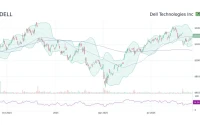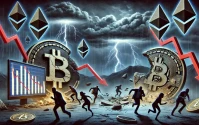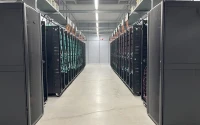So let me get this straight. The U.S. Army, in its infinite wisdom, announces it wants to build a bunch of tiny nuclear reactors. And the market, a place supposedly run by rational adults, proceeds to have a complete and utter meltdown, as Nuclear stocks mixed after U.S. Army launches program to deploy small reactors.
One company’s stock, Oklo, tanks. Another, NuScale, skyrockets 16% in a single day. A uranium company gets a 10% bump. It’s a chaotic mess of green and red tickers, a seizure-inducing light show for the Robinhood crowd. All this sound and fury is based on a press release—a simple declaration of intent from the Pentagon.
This isn't investing. This is a high-stakes guessing game fueled by AI-power-demand fantasies and presidential mandates. It’s like watching a bunch of people bet their life savings on a horse race where none of the horses have been born yet. And frankly, I’m getting tired of pretending it’s anything else.
The Pentagon's Nuclear Power Play
The Army has dubbed this little venture the "Janus Program." Cute. Named after the two-faced Roman god of beginnings and endings. I guess one face looks at a future of clean, reliable energy for military bases, and the other face looks at a smoking crater of taxpayer money.
The official line is that these microreactors will be "commercially owned and operated." This is PR-speak at its most insulting. Let's translate, shall we? "Commercially owned" means a private company gets the contract, and "operated" means they'll be on the hook if something goes wrong. But the "customer" is the U.S. military, an entity with a bottomless pit of money and a mandate from a Trump executive order to have a reactor humming by 2028.
This isn't a free market; it's a golden ticket. It's a government-subsidized race where the finish line was drawn by a politician, not by technological readiness. So when the Army says it wants to help developers "scale their businesses," what it really means is it's about to make a few well-connected founders obscenely rich on the public dime. Does anyone seriously believe this is about fostering a competitive marketplace? Or is it about picking a winner and showering them with cash until they produce something, anything, that can be called a reactor by the 2028 deadline?
The whole thing feels rushed, a solution desperately in search of a problem that it can solve before a political clock runs out. We're not talking about building a new app here. We're talking about nuclear fission. The phrase "move fast and break things" takes on a slightly more terrifying meaning, don't you think?

A Casino of Zeroes
Now let's look at the companies caught in this whirlwind. You’ve got `Oklo`, whose stock took a hit after the announcement. Why? Your guess is as good as mine. Maybe investors suddenly remembered that Oklo has, to date, generated exactly zero dollars in revenue and has not deployed a single reactor.
But wait! Its competitor, `NuScale`, saw its stock (`SMR`) pop over 16%. And how much revenue did they post last quarter? A whopping $8 million. That's it. Another competitor, Nano Nuclear, has also generated zero revenue. These aren't businesses; they're glorified science projects with stock tickers attached. It's a complete shell game, and the house allways wins.
The market's reaction is the definition of insanity. Punishing one zero-revenue company while rewarding another company that's barely above zero is like arguing over which empty lottery ticket is more valuable. It’s all just gambling on vaporware. The entire small modular reactor (SMR) space is a casino where the chips are government contracts and the dealers are whispering sweet nothings about powering the AI revolution. Everyone from the `NVDA` bulls to the `PLTR` fanatics is convinced that AI’s insatiable hunger for electricity will be the tide that lifts all nuclear boats.
This is a market detached from reality. It's a story stock fever dream. Goldman Sachs even had to come out and tell investors to be careful with `Oklo stock`, which is the Wall Street equivalent of a parent telling their kid not to stick a fork in an electrical socket. If bankers are telling you to be cautious about a speculative stock, you know things have gone completely off the rails.
Then again, maybe I'm the crazy one here. Maybe this is the new paradigm, and I'm just an old man yelling at a cloud. These guys could be the next `Tesla`, and their stocks could be the next `TSLA`. But my gut tells me we've seen this movie before, and it usually ends with a lot of retail investors holding a very empty bag. They're selling a future that might not even exist, and people are buying it hook, line, and sinker because... well, because they're desperate for the next big thing.
This isn't just speculation. No, that's too clean a word—it's a full-blown delusion, a mass psychosis gripping a market that has forgotten what a real, functioning business even looks like.
The Emperor Has No Reactor
Let’s call this what it is: a government-funded, hype-driven lottery. We have a handful of companies, none of which have a commercially viable product, being treated like the second coming of Edison because of a military press release and a vague connection to the AI boom. Their valuations aren't based on profits, or revenue, or even working prototypes. They're based on a story—a compelling, futuristic story, I'll grant you—but a story nonetheless. We're betting on blueprints. We're speculating on promises. And until one of these companies actually builds a reactor that works, that's all this is. Hot air.









